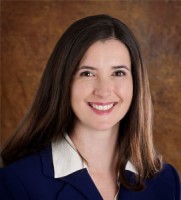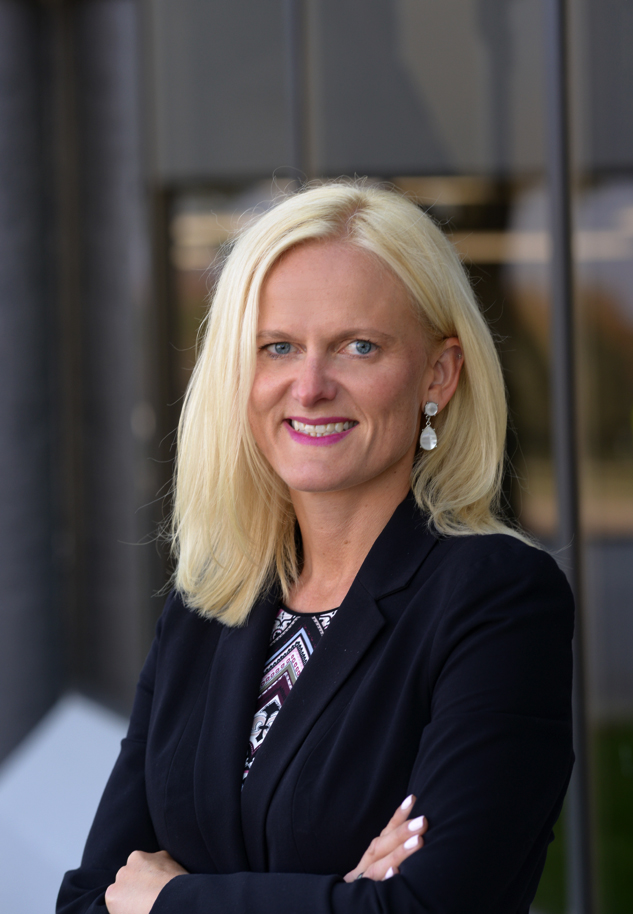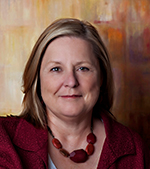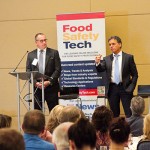A key focus of Women in Food Safety is to highlight female leaders in various food safety career paths. This month we have the privilege to speak with Jennifer McEntire, Ph.D., SVP of Food Safety & Technology at the United Fresh Produce Association, who has a storied career combining hard-core science with policy development that is risk-based, science-based and pragmatic to implement.
As many know, I am a lawyer. With that, I feel compelled to disclose the following disclaimer: I have worked alongside Jennifer as a business and industry colleague, and I consider her one of the most impressive, influential yet humble people I have ever met. Given my first-hand knowledge of her professional and personal contributions and unquestionable character, our conversation quickly dove deep into candid discussions about her career path, focusing on her passion for policy and seeing trade associations as a vehicle and a collective voice to influence and shape policy. Jennifer’s insights on being female in our industry are truly enlightening. See for yourself.
Melanie Neumann: Can you please summarize your career path to your position today, or what I like to consider your “path to produce?”

Jennifer McEntire: I grew up in Long Island, which is not exactly the epi-center of agriculture. I liked science but didn’t want to be a doctor. At the time the University of Delaware looked through all the postcards (yes, I’m dating myself!) of kids interested in science and sent packets of information about the food science program. It was the best thing that could have happened to me! It was a small program; there were only four people in my graduating class; so I really couldn’t fly under the radar. I am the first person in my family to go to a university and I had no idea what graduate school was. Tons of people took me under their wing. I was able to do food safety research as an undergrad, which allowed me to jumpstart my graduate education. I truly had no plan to get a Ph.D. I wanted to work! But during my freshman year of college my biology professor nonchalantly mentioned that graduate students in sciences get paid to go to graduate school. I was like, WHAT?!? It was a no brainer. The more I got involved with the food science clubs at UD and at Rutgers (where I got my Ph.D.) and the more I networked with professionals at regional meetings of the Institute of Food Technologists (IFT), the more I learned about the breadth of career options. I knew I didn’t want to be an academic so I didn’t do a post doc. (That said, I love mentoring, training and professional development, and have been lucky to weave it into every job I’ve had). I liked the product development side but thought I might get bored in one company. Although I am an introvert, I like hearing different perspectives and meeting very different kinds of people. Once I saw the nexus of disciplines and perspectives in Washington D.C., I was hooked. Although I’ve always worked in the general food safety arena, at IFT, The Acheson Group, GMA, and now at United Fresh, each role has been vastly different and I keep realizing how much there is to learn.
Neumann: Much of your career centers around trade associations. Why did you choose this sector over others in the food industry?
McEntire: Trade associations provide me with a vehicle to fulfill my goal of being an “Ambassador for Science.” I was fortunate to have a rare opportunity as USDA National Needs Fellowship at Rutgers, which allowed me to work for both FDA and a trade association, the National Food Processors Association (NFPA), towards the end of my Ph.D. program. I quickly fell in love with the buzz of D.C. and realized this is where the action is—the intersection of science, law, policy and the power of networking. I accepted a permanent position with IFT in their D.C. office after graduation to continue my quest to learn more about the inner workings of D.C. as well as provide IFT with an even greater voice based on science. I’ve now been in D.C. over 20 years. I understand why it turns some people off, but I love it. I’m constantly meeting new people and really love being a conduit between the industry, the regulators, policy makers and others.
Neumann: From the start it seems like you were fortunate that you were able to start your career at the strategic level, or “forest”. What advice would you give someone who perhaps had a more typical start in a technical role, or “trees”, and wants to gain strategic roles in the industry?
McEntire: From the get-go at IFT I was pulling together expert panels, meaning I was constantly around experts, which was exhilarating for someone in her 20s. But I realize that’s atypical. Part of what I love about working in associations is the ability to connect people. Those are opportunities exist at every level. “Seek out, don’t sit back.” This advice applies equally personally and professionally. If you want to understand how your current technical role supports your food safety strategic plan or corporate strategy, seek out who you believe can answer your question and ask. If you have a suggestion to improve your role or an aspect of your food safety program, speak up. If you would really like a mentor but no one has assigned you one, seek them out. What worked for me early in my career and what still does today is that I study people. I may be at a conference listening to a presenter, and I will ask myself “what do I like about their style of communication?” or “What about them is capturing my attention enough to listen to them?” Adopting certain aspects you like, (or dislike and want to be sure you avoid doing!), and adapting your style to incorporate them is a great way to professionally evolve. This said, don’t lose yourself or your own style by impersonating or assimilating too much of others’ ways. What sets you up for success is designing an approach that leverages your personal strengths and is unique to “you”.
A key message from my perspective is not to sit back and wait for the career you want. Rather, my advice is to proactively seek out opportunities, answers to questions and relationships with others in your company and/or in the food industry that you believe you would benefit from interacting.
Neumann: Have you experienced challenges in being a female in this space?
McEntire: Subtle challenges, sure. In my case I feel it was more my age than my gender that I needed to overcome. But specific to gender, my biggest perceived challenge was the pressure I placed on myself. These self-imposed challenges were expectations I put on myself in part due to societal expectations or roles I thought I needed to play as a mother, partner, community member and as a professional. I expected to perform at 100% at all times in every role, and over time realized that isn’t sustainable, or even sane, to expect of yourself!
As a younger professional I knew that I had hurdles to overcome when I walked into a room (sometimes I still feel that way). What I learned over time is how the power of data helps in situations where, real or perceived, I felt that my audience wasn’t tuning in to me as much as others in the room. That is when I became even closer friends with data and gave thought about how to construct and communicate my key points. I learned that with sound facts based on sound science to support my position, I was the most informed person on that topic in the room, and my ability to successfully negotiate and convince the other stakeholders increased considerably. This was especially true when I tied the data to tell a compelling story. The most effective, influential professionals I have encountered, some I consider my mentors, are master storytellers—relying on facts when presenting their case in a way that tells a story.
Neumann: Do you have any additional insights or advice to share with women in food safety regardless of where they are at in their career journey?
McEntire: If you love what you do, and you do it well, be bold and be brave. So many people, male and female, saw a potential in me I wasn’t even aware of, and they made serious investments in me. I find that in the field of food safety, that’s pretty common. We are a friendly bunch! So reach out and start talking to people. You’ll be amazed how many people will chat with you at a meeting or return your email.
One thing that concerns me, and I don’t yet have enough anecdotal data to tell if younger women are more prone to this than their male counterparts, is this expectation that they have to know their full career path from the time they are 18 years old. They seem to put a lot of pressure on themselves to “have it all figured out”. As someone who is “Type A” and very much a planner, I can confidently say that no part of my career has been planned. I never ever could have predicted that I would wind up where I am today. I maintained an openness to new opportunities, listened a lot, and considered new information that became available. I did my best to not burn bridges, while at the same time sticking up for myself and for others. Food safety is hard. It takes a thick skin and at this point in my life I have to say that having a network of women food safety colleagues as a support system makes some of the more stressful days much easier.
Check out the Women in Food Safety column to learn about more female leaders like Jennifer. Join the conversation on For Women in Food Safety on LinkedIn.







